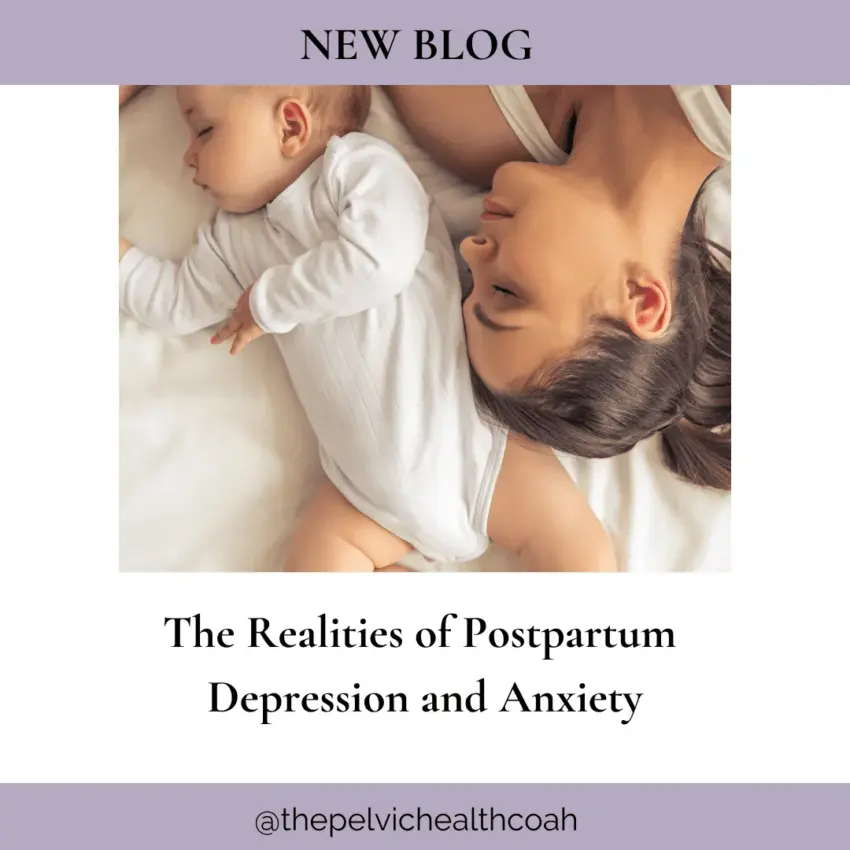Chances are you’ve heard of the baby blues. If you’ve given birth, you’ve probably been asked a range of questions or given a questionnaire by your OB/GYN or baby’s pediatrician. Yes, it’s true sometimes baby blues can be a common reaction due to a change in hormones after delivery. So what happens when being sad, crying, and the feeling of being overwhelmed lasts longer than a few weeks? Depression and anxiety can be scary, especially if you’re in the postpartum period. It can range from mild or to so severe that it can feel debilitating to your everyday life.
Did you know that it is reported that up to 1 in 5 women will suffer from a maternal mental health disorder like postpartum depression? While 75% percent do not receive any treatment at all which can have negative impacts on yourself and those around you. Maternal Mental Health Disorders can happen prenatally, perinatally, or postpartum. A common misconception is that these disorders dissipate over time; however, some symptoms can last for years after delivery and can begin anytime within the first year postpartum.
Many of the signs of postpartum depression can overlap with postpartum anxiety. It’s common for people with postpartum depression to experience signs of postpartum anxiety though not everyone with postpartum anxiety is depressed. Postpartum depression is diagnosed when at least 5 depressive symptoms are present for at least 2 weeks:
- Depressed mood (subjective or observed) is present most of the day
- Loss of interest or pleasure, most of the day
- Insomnia or hypersomnia
- Psychomotor retardation or agitation
- Worthlessness or guilt
- Loss of energy or fatigue
- Suicidal ideation or attempt and recurrent thoughts of death
- Impaired concentration or indecisiveness
- Change in weight or appetite (weight change 5% over 1 month)
Postpartum anxiety is associated with:
- Excessive or extreme worrying, not with sadness, that feels like it never stops
- Excessive worries that are related to the baby, like nursing, feeding, social interactions,
or returning to work - Feeling of panic or overwhelm with fearful thoughts
- Poor concentration or disrupted sleep
- Heart palpitations
- Feelings of guilt
- Fear of being left alone with baby or fear of leaving baby alone with other family or
caregiver
When it comes to maternal mental health disorders, there is absolutely nothing more important than seeking help. We often find people coming into Pinnacle Women’s Therapeutics not knowing where to get help and even embarrassed or fearful to ask for help. There is an abundance of resources available. If you’re having feelings that just won’t go away, here are some resources for you:
- In an emergency or crisis situation, call or text 988.
- Call or text the National Maternal Mental Health Hotline at 1-833-9-HELP4MOMS
(1-833-943-5746) - Postpartum Support International: www.postpartum.net
- Perinatal Support Washington: perinatalsupport.org/for-parents
- Baby Blues Connection: www.babybluesconnection.org
You are not alone. You are not at fault for these feelings. Your mental health matters!



